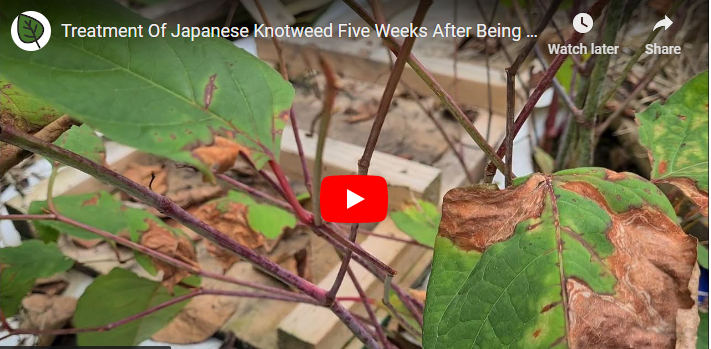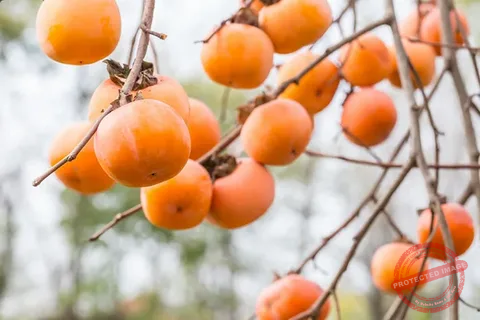Groundnut, also known as peanut or earthnut, is a widely cultivated legume that is valued for its rich nutritional content and versatile uses. To maximize the yield and quality of groundnut crops, it is crucial to provide them with the right nutrients through fertilization.
Some of the best fertilizers for Groundnuts include Compost, Potassium Chloride, Diammonium Phosphate (DAP), Fish Emulsion, Bone Meal, Seaweed Extract, and Blood Meal.
In this comprehensive guide, we will delve into the realm of groundnut fertilizers, exploring the 15 best options available in both organic and inorganic categories. Whether you’re a seasoned farmer or an enthusiast gardener, this article will equip you with valuable insights to optimize your groundnut cultivation. So, let’s dive right in!
15 Best Fertilizers for Groundnut Organic & Inorganic
Fertilizers play a pivotal role in nourishing groundnut plants and facilitating their growth. Here are the 15 best fertilizers for groundnut, categorized into organic and inorganic options:
Read Also: 15 Best Fertilizers for Beans [Organic & Inorganic]
Organic Fertilizers for Groundnut
1. Fish Emulsion:
Derived from fish waste, this organic fertilizer is rich in nitrogen, phosphorus, and potassium. It promotes healthy foliage and encourages robust root development.
2. Bone Meal:
A natural source of phosphorus and calcium, bone meal enhances flower and fruit formation in groundnut plants. It also aids in strengthening the plant’s structural integrity.
Read Also: The Ultimate Guide to Maize Fertilizer Schedule: Boost Your Crop’s Growth
3. Compost:
Compost acts as a complete fertilizer, supplying essential nutrients gradually to the groundnut plants. It improves soil structure, increases water retention, and boosts microbial activity.
Read Also: 21 Best Fertilizer for Soybeans Organic & Inorganic: Maximizing Yield and Quality
4. Seaweed Extract:
Packed with trace minerals, seaweed extract stimulates groundnut growth and enhances its tolerance to environmental stressors. It also improves nutrient absorption.
Read Also: 15 Best Fertilizers for Watermelon: Organic & Inorganic
5. Worm Castings:
These nutrient-rich organic fertilizers improve soil fertility and support overall plant health. They contain beneficial microorganisms that aid in nutrient uptake.
Inorganic Fertilizers for Groundnut
6. NPK Fertilizer (10-10-10):
This balanced fertilizer provides equal proportions of nitrogen, phosphorus, and potassium. It is suitable for groundnuts in various growth stages and helps achieve healthy plant development.
Read Also: 12 Liquid Fertilizers for Maize: Boost Your Crop’s Growth!
7. Diammonium Phosphate (DAP):
With a high phosphorus content, DAP promotes root growth and enhances flowering and fruiting in groundnut plants. It is particularly beneficial during the early stages of cultivation.
8. Urea:
A nitrogen-rich fertilizer, urea stimulates leaf and stem development in groundnuts. It facilitates the production of chlorophyll, essential for photosynthesis.
Read Also: 15 Best Fertilizers for Tobacco [Organic & Inorganic]
9. Potassium Chloride:
Groundnut plants require potassium for proper nutrient transport and water regulation. Potassium chloride ensures healthy crop development and improves resistance to diseases.
10. Calcium Nitrate:
This fertilizer supplies calcium and nitrogen to groundnut plants, promoting strong cell wall development and preventing disorders like blossom end rot.
Read Also: Fertilizer Schedule for Tomatoes: Maximizing Your Tomato Harvest
11. Superphosphate:
Rich in phosphorus, superphosphate supports root growth, flowering, and fruiting in groundnuts. It improves overall crop yield and enhances plant vigor.
12. Ammonium Nitrate:
A readily available nitrogen source, ammonium nitrate boosts groundnut growth and improves protein synthesis. It is suitable for use during the vegetative stage.
Read Also: Fertilizer Schedule for Lawns: A Comprehensive Guide to Achieving a Lush, Green Yard
13. Magnesium Sulphate:
Groundnuts benefit from magnesium for chlorophyll production and enzyme activation. Magnesium sulphate prevents magnesium deficiency and enhances photosynthesis.
14. Ammonium Sulphate:
With a high nitrogen content, ammonium sulphate promotes vigorous growth and increases groundnut yield. It is particularly effective in soils with low pH levels.
Read Also: Fertilizer Schedule for Sugarcane: Maximizing Yield with Proper Nutrient Management
15. Muriate of Potash:
Groundnut plants require potassium for flowering and fruiting. Muriate of potash is a concentrated potassium fertilizer that ensures optimal crop development.
Now that we have explored the top 15 fertilizers for groundnut, let’s address some common questions related to groundnut fertilization.
Read Also: Fertilizer Schedule for Apple Trees: Optimal Nutrition for Bountiful Harvests
How often should I fertilize groundnut crops?
It is recommended to apply fertilizers during planting and subsequent stages of growth. For inorganic fertilizers, follow the instructions provided by the manufacturer. Organic fertilizers can be applied every 4-6 weeks.
Read Also: 15 Best Fertilizer for Sweet Potatoes Farm [Organic & Inorganic]
Can I use both organic and inorganic fertilizers together?
Yes, a combination of organic and inorganic fertilizers can be beneficial. Organic fertilizers improve soil health and provide slow-release nutrients, while inorganic fertilizers deliver immediate nutrition to the plants.
Read Also: 15 Best Fertilizers for Okra Farms [Organic & Inorganic]
Should I conduct a soil test before applying fertilizers?
Yes, a soil test is crucial to determine the nutrient levels and pH of the soil. This helps in identifying any deficiencies or imbalances and allows for targeted fertilizer application.
Read Also: 15 Best Fertilizers for Groundnut [Organic & Inorganic]
How much fertilizer should I apply per groundnut plant?
The amount of fertilizer required depends on various factors, including soil fertility and crop age. Follow the recommended dosage provided on the fertilizer package or consult a local agricultural extension service for guidance.
Read Also: 15 Best Fertilizer for Rice Farm [Organic & Inorganic Fertilizers]
Can I make my own organic fertilizer for groundnuts?
Absolutely! Composting kitchen scraps, yard waste, and animal manure can provide nutrient-rich organic fertilizer. However, ensure proper composting techniques to prevent weed seeds and pathogens.
Are there any natural alternatives to chemical fertilizers?
Yes, several natural alternatives such as vermicompost, compost tea, and green manure can be used to nourish groundnut plants organically.
By addressing these frequently asked questions, you now have a clearer understanding of groundnut fertilization. Remember, choosing the right fertilizer and following proper application techniques can significantly impact your groundnut yield.
Conclusion
In conclusion, selecting the best fertilizers for your groundnut crops is crucial for achieving optimal growth, higher yields, and nutrient-rich harvests. Whether you opt for organic or inorganic fertilizers, it is essential to consider the specific nutritional requirements of groundnut plants at different growth stages.
By incorporating the 15 best fertilizers for groundnut, both organic and inorganic, into your cultivation practices, you can ensure that your plants receive the necessary nutrients for healthy development. Remember to follow recommended dosage instructions, conduct soil tests, and monitor your plants’ progress regularly.
So, get ready to boost your groundnut yield by nourishing your plants with the right fertilizers. Happy farming and enjoy your bountiful harvest!



![How To Buy Farmland For Investment [Farmer’s Guide]](https://agrolearner.com/wp-content/uploads/2024/01/Farmland.jpg)